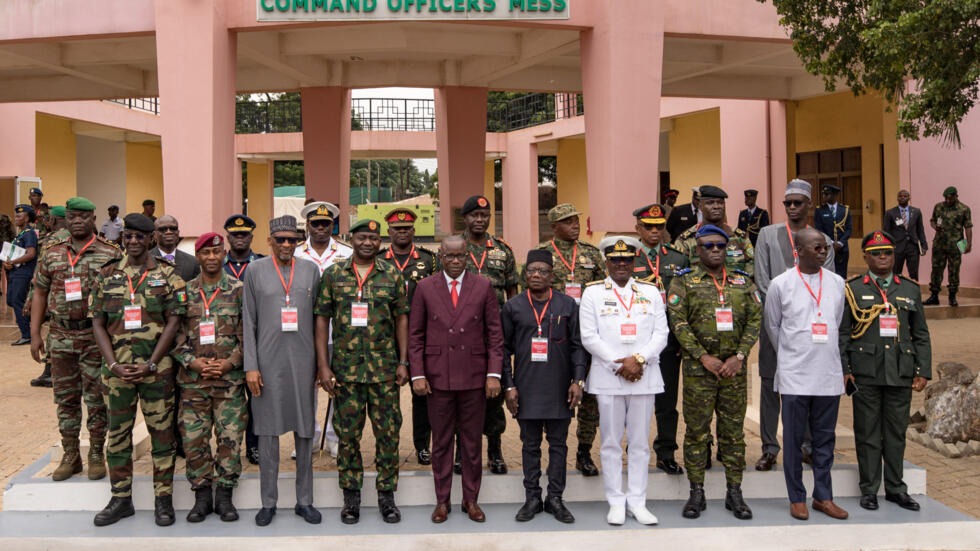It is now close to two weeks after ECOWAS (Economic Community Of West African States) issued a deadline for the Niger Army to return to their barracks following a coup against ex-President, Mohamed Bazoum.
Bazoum is currently in detention and hope of coming back to power remains faint as the army has turned down an ECOWAS request to release the detained President and to give up power.
As the coup leaders still hold the forte, questions about whether ECOWAS would restore democracy in Niger keep on filtering through the sub-region.
Although four countries including Nigeria have pledged to send troops to Niger, they are yet to depart owing to seeming resource constraints. Except Cote d’voire which has pledged USD150m, no country has neither donated nor pledged any amount of money for the proposed military intervention in Niger.
A full-scale combat operation calls for money and logistics for mission to be accomplished. As it always was, it appears as if ECOWAS was waiting for support from the United Nations before it intervened in Niger. UN supported ECOWAS to restore democracy in Sierra Leone after the army seized power in May, 1997. Niger’ situation, at the moment, remains critical even if UN supports ECOWAS for the invasion.
Mali, Burkinafasso and Guinea which have military governments are ready to fight on Niger’s side to repel ECOWAS troops. Powerful armies in Africa , Egypt and Algeria have also set aside troops to protect the Niger coup leaders.
The current situation is a big setback for ECOWAS which finds it difficult to mobilise troops and resources for combat operation in Niger. The seeming illegitimacy of the Nigerian President and ECOWAS Chairman, Ahmed Bola Tinubu is another challenge for the sub-regional bloc.
Back home, Tinubu is faced with legal suits challenging the legality of his presidency. Nigeria’s constitution says any person who wins any presidential election must have 25 percent votes in the capital city. Tinubu, according to reports, did not meet the constitutional threshold of 25 percent in the city to become a legitimate President for Nigeria.
The legitimacy factor, without any doubt, would affect Tinubu’s decision against Niger’s military government. Member states themselves are divided over the proposed military intervention in Niger.ECOWAS’s seeming loss of grip over peace and security of the sub-region was laid bare by one of its key members, Liberia.
The Liberian President, George Manneh Weah, few days ago, strongly condemned ECOWAS for being reactive. President Weah remains deeply concerned about bad governance systems in Africa that create conditions for coup d’etats. With a strong appeal to ECOWAS, he considers election rigging and manipulation of the courts among other factors as the main causes of coups in the sub-region.
“As long as ECOWAS tolerates institutional coups that allow life-time presidencies, fraudulent declaration of election results and manipulation of judicial pronouncements, there will always be military coups,” he asserted.
In his seeming strong condemnation of ECOWAS’s lack of proactive stance, the Liberian President bashed at the sub regional bloc for condemning coups but fail to condemn those who create the conditions for coups.
“We cannot condemn military coups when we do not condemn those who carry out institutional coups,” he criticised ECOWAS while calling on them to work in the people’s interest. At the moment, many share President Weah’s notion on military coups in the sub-region as four countries have quit ECOWAS, a situation that is warranting the sub-regional body to do what is right for proper stability.
Guinea, Burkinafasso, Mali and lately Niger have left ECOWAS with questions lingering about whether Sierra Leone will be next.
As if supporting, President Weah’s stance, the Gambian opposition leader, Honourable Mama Kandeh too strongly urged ECOWAS to address the causes of coups in the sub-region.
“I am not in support of coup d’etats, but I have a concern. Before setting up an Anti-Coup Unit in ECOWAS, it is high time for ECOWAS/African heads of states to look into the causes of coups,” Honourable Kandeh passionately appealed.
Kandeh’s appeal comes at a time the sub-regional bloc prepares to set up an Anti-Coup Unit that will be charged with the responsibility of removing those who come to power through the use of force.
The Gambian opposition also bluntly turned his attention to the Presidents to comport themselves first. “I believe that their houses are not in order; let them put their house in order first before they set up an Anti-Coup Unit,” he urged West African Presidents.


